Issue 34 : 14 July 2019
Talofa Lava, Kia Orana, Malo E Leilei, Tena Koutou, Hello ...
... and welcome to the latest issue of “For The Love Of The Game”, the official e-zine of the New Zealand Amateur Sport Association Inc. We hope you enjoy reading the articles below.
If you have any feedback on this issue, ideas for future articles, or would like to contact the Editor, please click here. And, you are invited to forward the e-zine to others you know, who may be interested in reading it.
If you are interested in applying for membership of the Association, please click here.
Wellington City Mission Joins Association ...
The impact of poverty on sport participation in the community has prompted the Wellington City Mission (WCM) to join the Association. Of note, WCM operates a “Mission for Youth”, which offers "a comprehensive alternative education programme for young people who have disengaged or been excluded from mainstream schools, by providing a place of belonging, life-skills, and new opportunities".
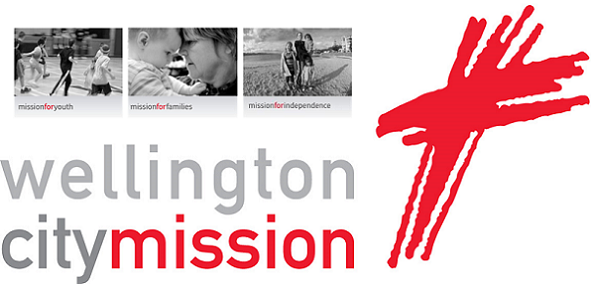
WCM's Ray Tuffin, with the support of Sport New Zealand and Halberg’s Disability Sport Foundation, is also involved in a new project titled "LOVE Golf All Abilities". This project is about creating greater awareness for golf as a sport of choice for young people, parents and adults with a physical or sensory disability and enriching their lives through the game.
You can read more about this initiative, by clicking here.
Pinnacle Corporation & Dynasty Sport Support Amateur Club Survey ...
The Association is pleased to welcome Pinnacle Corporation and Dynasty Sport as sponsors of the 2019 National Amateur Club Survey, to be undertaken in September this year.

Pinnacle Corporation works closely with shipping lines, major exporters and KiwiRail, providing container logistics services for the shipping industry. The company’s values of "Heart", "Excellence", "Respect" and "Commitment" are at the core of all community-based sports clubs. With more than 300 employees in 10 locations throughout New Zealand, Pinnacle Corporation families are a key part of many local sporting communities.
The Association is highly appreciative of the support of Pinnacle Corporation Director, Dion Ross, who is a strong advocate for amateur community sport thoughout New Zealand.
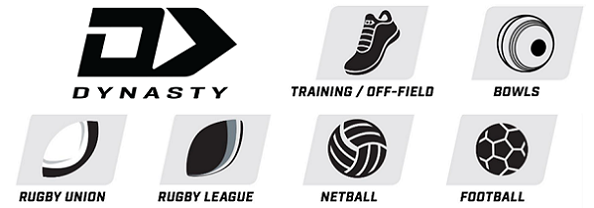
Dynasty Sport supplies high quality, custom on and off-field garments and support to professional partners, grassroots, clubs, educational facilities and charities throughout New Zealand. The company provides excellent value-for-money apparel solutions for amateur sports clubs, across all sporting codes.
The Association acknowledges the support of Dynasty's Paul Latham, who is heavily involved in supporting community sport in the Wellington region.

Amateurism Under Threat In United States ...
In the United States, athletes competing in sport while still at school are banned from earning income from their sporting pursuits. However the National Collegiate Athletic Association (NCAA), which regulates student athletes across 1,268 educational institutions, is now being reported as considering a change to its regulations, which would allow student-athletes to be compensated. As reported by the "Washington Examiner", there is resistance to this proposed abandonment of "amateurism".

“The idea that amateurism is the purest form of athletics has a long history; it’s what led to the modern Olympics, which banned professional athletes until 1986. It’s premised on the idea that there is something inherently noble in sacrifice and that in foregoing financial recourse athletes prove they are participating out of a sincere and abiding love for the game. To show up and to compete without promise of monetary reward displays a level of love that isn’t guaranteed when money enters the picture.”
You can read the full article, by clicking here.
Secondary School Athletes Face Psychological Stress ...
The "Journal of Athletic Training" published a Consensus Statement from the National Athletic Trainers’ Association in March 2015, following concerns regarding the mental health of secondary school student-athletes (ages 11 to 18), in the United States. The statement observed that teenagers are facing increasing stress when exposed to high-performance sport.

“Many student-athletes report higher levels of negative emotional states than non–student-athlete adolescents and have been identified as having higher incidence rates for sleep disturbances, loss of appetite, mood disturbances, short tempers, decreased interest in training and competition, decreased self-confidence, and inability to concentrate.”
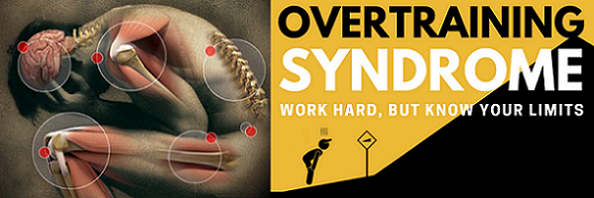
“Some of these changes in mood can also be related to over-training. Due to pressures to win, competition for athletic scholarships, and the adoption of professional training methods to ensure these outcomes, over-training has become a way of life for many of our young athletes.”
You can read the full statement, by clicking here.
Viewpoint : "Character" Matters ...
Many sports, when considering selection of players, refer to "character" as being part of their overall assessment. Yet, a new study has found that while there is an understanding of what "character" means, there is no clear definition of what "character", for the purposes of player selection, actually is.

A new study undertaken by the University of Otago, which focused on the role of "character" within the talent identification and development practices of New Zealand Rugby, found that within the organisation “there was no universal definition of character, or set of criteria used to assess players’ character.” While “character” was identified as a value to be assessed, it required a subjective interpretation to determine how it was to be applied.
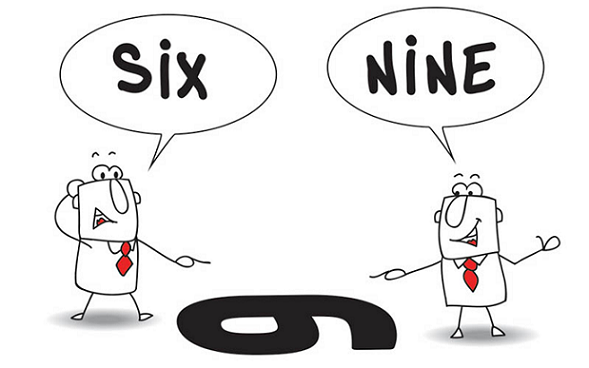
This is not surprising, given the concept of “character” is heavily reliant on social norms relating to a sporting code itself, the environment in which it is played, its broader social context and (in some cases), the "mythology" of its past. For example, some sports focus on "hard-values" such physical resilience as an outward expression of “character” (in terms of on-field performance), relative to "soft-values" (which tend to emphasise moral or ethical considerations off-field). Which are more important when assessing sporting “character”?
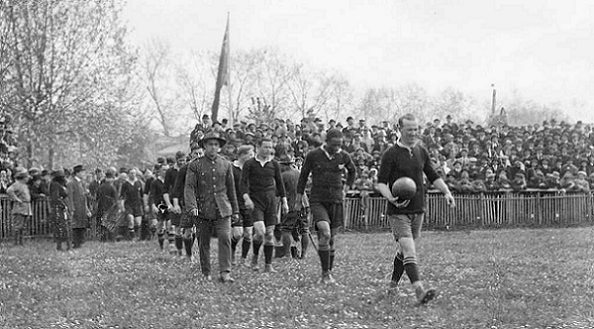
(Elements of New Zealand's sporting character can be traced back to the Great War)
Coaches and administrators of all sports need to be careful not to project their own subjective views of their sport and the players role within it, when grappling with the concept of evaluating "character". Particularly for youth, the impact of these interpretations can offer as as much risk to their development, compared to any potential reward.
From The Archives ...
RECRUITS TO GAME
EVENING POST, VOLUME CXXIII, ISSUE 108, 8 MAY 1937
“Indefensible opposition by a minority of biased school teachers has long been a stumbling block to Soccer's progress in New Zealand. Inventing a variety of ingenious but unconvincing excuses for their hatred of the world’s most popular football game, these few men have forbidden freedom of sport to hundreds of boys and as their word is generally law in their limited kingdoms, associations who have sought fair play have sought in vain. Football's best hope for equality of treatment in the future is the elimination of such hostility and there can be no better way of achieving that than through voluntary interest taken by the teachers of the future.”
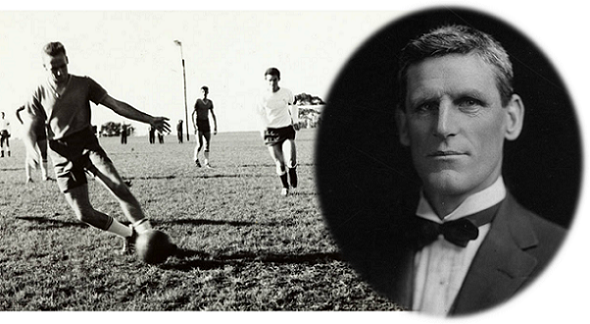
(Sidney G. Smith, Minister of Education, supported all football codes in secondary schools)
In the 1930’s, conventional wisdom in most secondary schools throughout New Zealand was that “because the grounds of the majority of schools are only large enough for the playing of one game and more boys take to Rugby Union than to any other winter sport”, it was not practical to include Association Football (Soccer) as a sporting option.
This attitude became exposed to increasingly strident calls from within education for schools to include Association Football as a viable option for those wishing to play the game, particularly noting that in primary schools the round-ball code was increasingly popular, given teams played inter-school matches, but “in keeping with the policy of the Headmasters Association, no championship was played for, nor were there any trophies”.
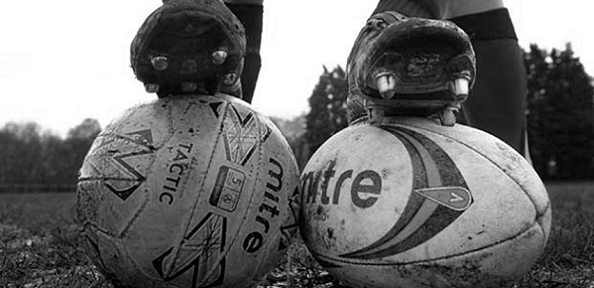
The then Minister of Education, Sidney George Smith, explained that the statutory authority as to secondary school sports were the schools’ governing Boards, observing that “that parents desired their children to play any particular game … the headmasters or the teachers concerned would be unwise to respect such wishes”.
Today, according to School Sport New Zealand data, there are about the same number of students playing Association Football as Rugby Union in secondary schools.
The Final Word ...
“The only thing that separates professional sport from amateur sport is entertainment. We pay our money to be entertained.”
(Mark Reason, Sunday Star Times)